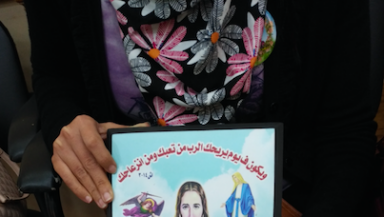Thirty-six people were sentenced to death yesterday by an Egyptian military court for their role in a number of deadly church bombings and attacks on security personnel, while a mood of sadness and forgiveness prevails among the country's resilient Christian community.
The accused were referred to an Alexandria military court last May after at least 80 people died in a series of shootings and bomb attacks on Coptic churches in Cairo, Alexandria and the Nile Delta city of Tanta in 2016 and 2017.
President Abdel Fattah El Sisi declared a three-month state of emergency after last year's Palm Sunday church attacks in which 45 people were killed in Alexandria and Tanta.
The case also includes defendants charged with participating in a January 2017 attack on a security checkpoint near the Western Desert that killed eight policemen as well as an attack on the Naqb checkpoint more than 600 kilometres southwest of Cairo, according to The National.
The state of emergency has since been renewed three times following Islamic State's targeting of security forces in the Western Desert and an attack in November on a North Sinai mosque in which more than three hundred mostly Bedouin worshippers were killed.
The accused were found guilty of having links to terrorist cells affiliated with a branch of ISIS in Egypt as well as illegal weapons and explosives manufacturers.
Prosecutors charged defendants with planning to launch attacks against Christians during holiday celebrations and regular Sunday services, The National reported.
The death sentence penalty has been referred by the court to the country's Grand Mufti, Shawki Allam, whose non-binding opinion on capital cases is customary under Egyptian law.
The verdict is subject to appeal, a process that can take years to complete.

Egypt's Christian Coptic minority makes up around 10 per cent of the country's 96-million-strong, Muslim-dominated population.
Touring St Mark's Coptic Cathedral on the eve of Palm Sunday, March 31, Christian Today found a mood of sadness but forgiveness among Christians at the church where 18 people died and dozens more were injured a year ago.
Father Kyrilos Fathy, a priest at St Mark's who was driving out of the church compound when the bomb struck, smiled ruefully when asked if he forgave the dead suicide bomber, and said 'Yes'.
And 33-year-old Mary Edwar said that although she had felt much anger and 'broken down' with many tears since the death of her husband Kareem Ghattasfollowing the attack, she asked God to forgive the man who detonated the explosives at the entrance to the church last Palm Sunday.
Christians leaders in Cairo meanwhile expressed confidence in president Sisi for bringing 'stability; to the country and seeking to protect its Christian minority.













